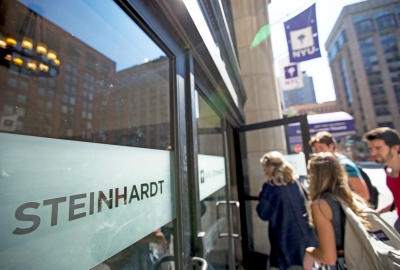This course investigates cultural influence and exchange between Africa, the African diaspora, Europe and America with a particular emphasis on sound and music. How has the sound of Africa been transcribed, recorded, stored, transported, and represented in the West? What can this tell us about global cultural flow? How do specific recording techniques articulate with global music markets? The course analyzes the transatlantic feedback between Africa, America and Europe; evaluates the politics of transcription, ethnographic description, and recording; and examines the changing role for traditional African music in a global world.
Course #
MCC-UE 1342
Credits
4
Department
Media, Culture, and Communication


